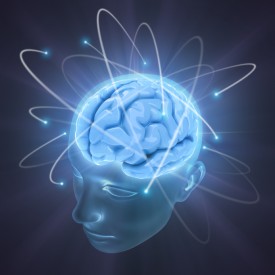Can Auditory Training in Babies Impact Speech and Language Development?
May 12, 2015 New research indicates that babies' brains can be trained to discriminate sounds, which are the building blocks of language. Could this lead to better cognitive and language skills later on in life?
New research indicates that babies' brains can be trained to discriminate sounds, which are the building blocks of language. Could this lead to better cognitive and language skills later on in life?
4 New Research Findings About Autism
Apr 21, 2015 With 1 in 68 children being diagnosed with autism, what are some of the latest research findings on autism? What are some of the interventions that might be effective in children with autism? Take a look as Dr. Martha Burns explores 4 new research findings on autism.
With 1 in 68 children being diagnosed with autism, what are some of the latest research findings on autism? What are some of the interventions that might be effective in children with autism? Take a look as Dr. Martha Burns explores 4 new research findings on autism.
Dyslexia – How Far We’ve Come!
Aug 5, 2014 We’ve come a long way in understanding dyslexia since the term was first used more than 40 years ago. Find out what the latest research says about the dyslexic brain and learn about neuroscience-based interventions that are proven to help.
We’ve come a long way in understanding dyslexia since the term was first used more than 40 years ago. Find out what the latest research says about the dyslexic brain and learn about neuroscience-based interventions that are proven to help.
How to Tell When Neuroscience-Based Programs are Well-Developed
Mar 25, 2014 Many technology programs claim to improve brain function, including memory and attention skills. How can you get through all the hype and determine which brain exercises incorporate the important design features that have been shown to be effective?
Many technology programs claim to improve brain function, including memory and attention skills. How can you get through all the hype and determine which brain exercises incorporate the important design features that have been shown to be effective?
Teach More Vocabulary, Faster, Using the Power of Morphology
Mar 4, 2014You can teach your students 10 vocabulary words the usual way – one at a time – or you can teach them 100 vocabulary words with little extra effort. The second approach seems like the obvious choice, and in Dr. Tim Rasinski’s recent webinar, Comprehension – Going Beyond Fluency, he makes the case for greater adoption of the accelerated approach.
Four Myths About Learning Disabilities
Feb 18, 2014Learning differences or disabilities are frequently misunderstood. Symptoms of specific learning disabilities can be complex and confusing, and may look more like behavioral problems than learning problems to some. But some of the most common myths about learning disabilities are easy to dispel with a look at the facts.
Auditory Processing Disorder Interventions: How Do They Work?
Nov 5, 2013Auditory processing disorders can be traced to specific regions of the brain, especially regions of the brainstem. Find out how targeted auditory processing disorder interventions result in better listening skills and improved brainstem response to speech.
Why Auditory Processing Disorders Are Hard to Spot
Oct 29, 2013Your most struggling student just isn’t listening – again. But could there be more to it? Auditory processing disorders can look a lot like inattention, and it’s not easy to tell the difference. Why is it so hard to figure out what’s going on?
Building Better Writers (Without Picking Up a Pen)
Oct 15, 2013All too often, teachers give little attention to the cognitive skills of writing. That’s a shame, because cognitive skills are the building blocks upon which writing depends.
The Neuroplasticity Revolution With Dr. Norman Doidge
Oct 8, 2013Norman Doidge, M.D., discusses why the concept of brain plasticity—the brain’s ability to grow and change in structure and function in response to experience—is “the most important change in our understanding of the brain in 400 years.”
Pages

